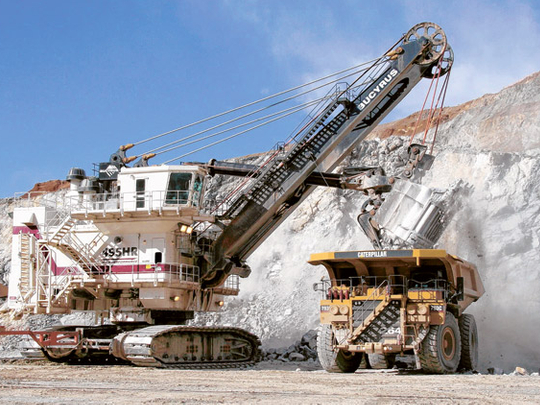
New York: Big deals are a big deal again.
From Caterpillar to Chevron to Google, some of the best-known names in corporate America are scooping up smaller companies, finally putting the piles of cash they've been sitting on to use and positioning themselves for a stronger economic recovery.
The volume of mergers and acquisitions is still running well below what it was in 2007 before the Great Recession, but the burst in activity is a sign of economic vitality and shows that companies are starting to shake off some of their caution.
"Our pipeline is bursting," says Robert Profusek, head of mergers and acquisitions at the law firm Jones Day, who advised Continental Airlines when it was acquired by the parent of United for $3.2 billion (Dh11.7 billion). "We are gearing up for an incredible M&A boom."
M&A volume reached $2.25 trillion in the first 10 months of the year, a 28 per cent increase over last year. August was the highest month on record, with $307 billion in deals, more than double August 2009, according to Dealogic, which tracks such data. October remained strong with $202 billion deals, up 32 per cent from last year.
"It's an early indicator that confidence is shifting," says George Geis, faculty director of the mergers and acquisitions executive program at the University of California, Los Angeles.
Equity firms
Almost all the deals are companies buying companies. Private equity firms, which spurred the buyout boom last decade, have made just 8 per cent of the acquisitions this year, compared with 23 per cent in 2006.
Typical is Caterpillar's announcement Monday that it will buy Bucyrus International Inc. for $7.6 billion. Caterpillar, the world's largest maker of construction and mining equipment, was sitting on $2.3 billion in cash at the end of the third quarter. The acquisition allows Caterpillar to add to its line of mining equipment, which is in high demand in emerging markets
Just last week Chevron said it would buy natural gas producer Atlas Energy for $4.3 billion, giving the oil company an entry into the rich gas fields in the eastern part of the US.
Among the other deals in the past three months, Dove soap maker Unilever bought the VO5 haircare company Alberto-Culver for $3.7 billion, and Southwest Airlines bought AirTran Holdings for $1.4 billion. Drug giant Pfizer bought pain medication maker King Pharmaceuticals for $3.6 billion, and Google bought BlindType, a startup that corrects sloppy typing on mobile phones for an undisclosed price.
The deals are happening, in part, because companies have amassed a record $1.84 trillion in cash as of June 30, according to the Federal Reserve. That was 18 per cent more than a year earlier.
Few things in business conjure up as much excitement as wheeling and dealing. Mergers are a high-stakes, secretive game and often reflect an ambitious executive's eagerness to leave a personal stamp on the company. Some of that atmosphere is back.
Confidential
The recent Southwest Airlines-AirTran deal used secret codes such as "falcon" and "cowboy" in e-mails and documents exchanged between executives to keep their talks confidential. But unlike the deal making of the 1990s and most of the 2000s, ego-driven blockbuster deals are rare. Most deals this year have been smaller and driven by strategic decisions emerging from the recession.
Every recession brings change. Products, and sometimes companies, become obsolete. Consumers' tastes change. Hard times drive innovation, which leads to new technologies and products.
Companies that want to be prepared for an improving economy pursue acquisitions because they are a quick way to fill holes in their businesses, says Robert Bruner, an M&A expert and dean of the Darden School of Business at the University of Virginia.
Bidding bonanza
The following bids, mergers, acquisitions and disposals involving European, US and Asian companies were reported by 0430 GMT on Tuesday.
- Hyundai Group was named the preferred bidder for a $2.5 billion-plus stake South Korea's biggest builder, in Hyundai Engineering & Construction Co Ltd, beating out rival Hyundai Motor Group.
- Hana Financial Group is in talks with private equity firm Lone Star to buy a $4.1 billion stake in Korea Exchange Bank, elbowing aside rival suitor Australia and New Zealand Banking Group.
- Caterpillar Inc sealed its position as the world's No. 1 maker of mining equipment with its purchase of Bucyrus International for $7.6 billion, the biggest acquisition in its 85-year history.
- AstraZeneca Plc has hired JPMorgan Chase & Co to help it sell Astra Tech, a Swedish unit that makes dental implants and medical devices, for about $2 billion, a source familiar with the situation said.
- Australian insurer and bank Suncorp Metway Ltd sold its funds management business Tyndall Investments to Japan's Nikko Asset Management as it simplifies its business by shedding non-core assets.












